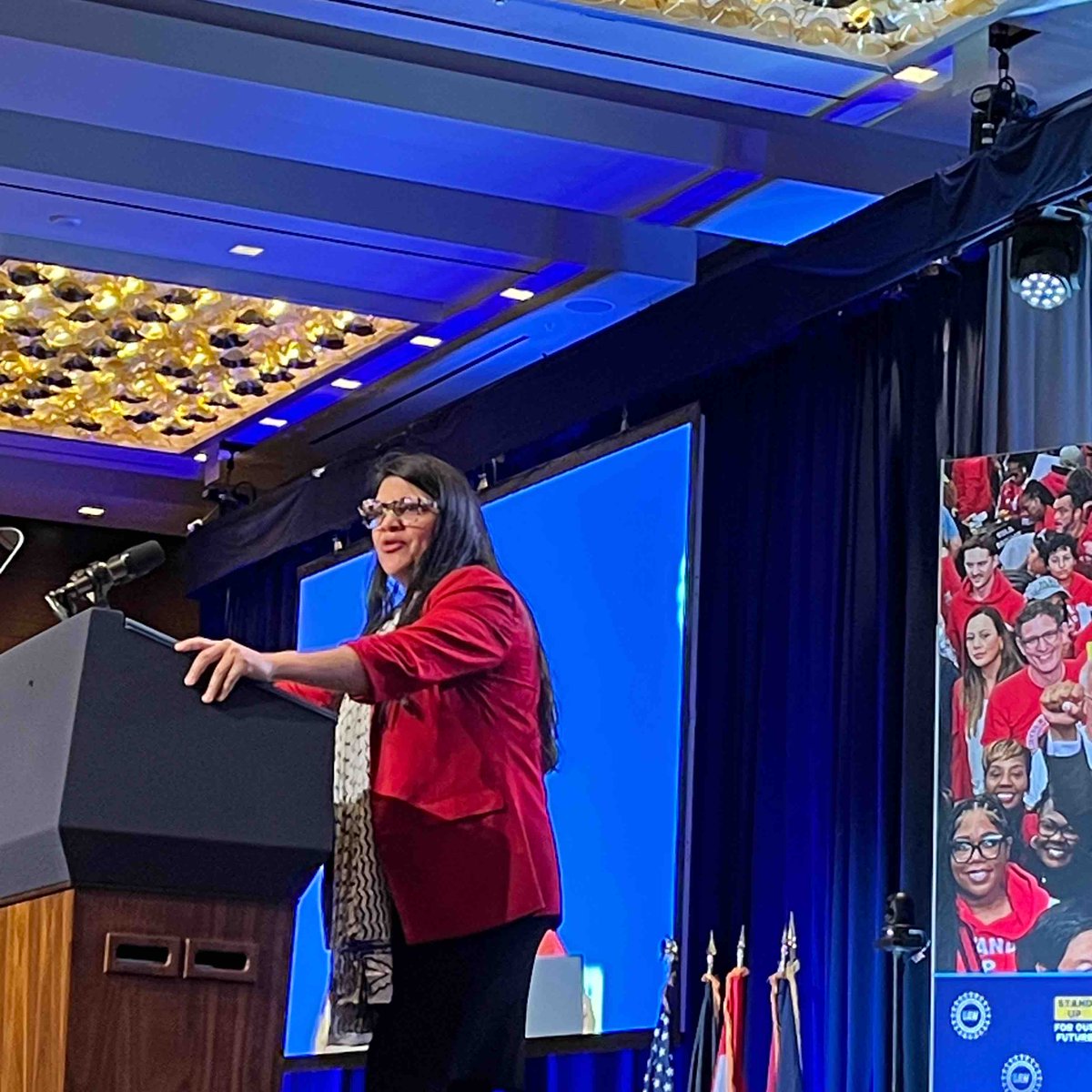The statement by Congresswoman Rashida Tlaib uses metaphorical language to criticize what she perceives as excessive corporate profit-seeking at the expense of workers. It implies a call to action or support for the United Auto Workers (UAW) union, as indicated by the hashtag #StandUpUAW.
- The statement does not appear to cause harm but rather seeks to highlight and address a perceived injustice. [+1]Principle 1:I will strive to do no harm with my words and actions.
- The statement respects the dignity of workers and does not infringe on the privacy of any individuals. [+1]Principle 2:I will respect the privacy and dignity of others and will not engage in cyberbullying, harassment, or hate speech.
- The language is not harassing or hateful; it is critical of corporate behavior but does not target individuals with hate speech. [+1]Principle 3:I will use my words and actions to promote understanding, empathy, and compassion.
- The statement promotes understanding of the congresswoman's perspective on corporate behavior and its impact on workers, and it implicitly calls for empathy towards workers. [+1]Principle 4:I will engage in constructive criticism and dialogue with those in disagreement and will not engage in personal attacks or ad hominem arguments.
- The statement is part of a dialogue on labor rights and corporate responsibility, although it does not directly engage with opposing viewpoints.Principle 5:I will acknowledge and correct my mistakes.
- The statement acknowledges the role of workers in addressing issues related to corporate practices. [+1]Principle 6:I will use my influence for the betterment of society.
- The congresswoman is using her platform to speak on labor issues, which is within her role as a public figure and lawmaker. [+1]Principle 7:I will uphold the principles of free speech and use my platform responsibly and with integrity.
